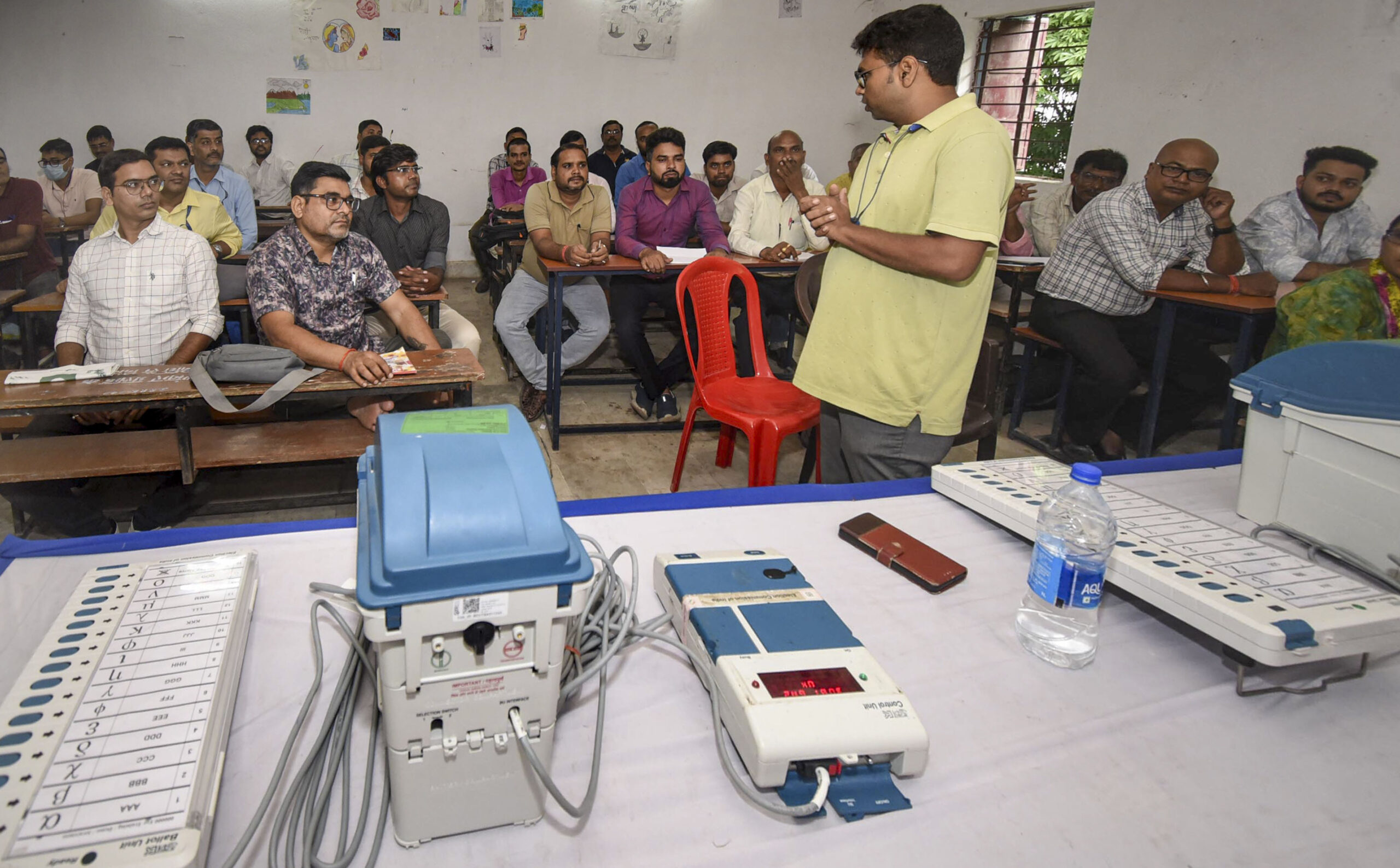Politics
Dynastic Politics Shape Bihar Elections with Influential Candidates

In the lead-up to the Bihar Assembly elections, scheduled for November 6 and November 11, the political landscape is marked by a significant presence of dynastic candidates. Many of these individuals are either relatives of established politicians, such as sons, daughters, or spouses, highlighting the entrenched nature of political families in the region.
The 243-member Bihar Assembly will see various candidates vying for seats, predominantly from major political parties. Notable figures include Tejashwi Yadav, the younger son of party leader Lalu Prasad, contesting from Raghopur on behalf of the Rashtriya Janata Dal (RJD). Other contenders include Samrat Choudhary, son of former minister Shakuni Choudhary, representing the Bharatiya Janata Party (BJP) from Tarapur, and Osama Shahab, son of the late gangster-turned-politician Mohammad Shahabuddin, competing in Raghunathpur.
The trend of dynastic politics is prevalent across various parties, with candidates such as Snehlata, wife of party chief Upendra Kushwaha, from the Rashtriya Lok Morcha, and Nitish Mishra, son of former Chief Minister Jagannath Mishra, from Jhanjharpur. Others include Deepa Manjhi, daughter-in-law of Union minister Jitan Ram Manjhi, and Jagriti Thakur, granddaughter of renowned socialist leader Karpoori Thakur.
Vidyarthi Vikas, an Assistant Professor of Economics at the A N Sinha Institute of Social Studies in Patna, commented on the implications of dynastic politics in Bihar. He stated, “The way dynasts are entering politics shows that all political parties are least bothered about ideological commitments, constitutional values, and democratic principles.” Vikas emphasized the need for public awareness regarding the influence of political families, noting that education has not been prioritized in Bihar over the past 77 years.
He further highlighted the low education levels among the rural population, with only 14.71 percent achieving completion of class 10 exams, according to the latest caste survey. This lack of political awareness, Vikas argued, enables parties to exploit less educated voters and promote dynastic candidates.
The RJD’s state unit spokesperson, Mrityunjay Tiwary, echoed these sentiments, stating that ordinary party workers often lack the opportunity to contest elections. He noted the increasing emphasis on glamour, which has transformed the electoral landscape in India. Tiwary also pointed out that the unregulated financial resources available to candidates and political parties create an uneven playing field.
In response to concerns about the dominance of dynastic politicians, Niraj Kumar, a spokesperson for the BJP, defended the party’s approach. He asserted that the BJP values leaders and workers who demonstrate organizational commitment and competence in serving the public. Kumar cited the example of Prime Minister Narendra Modi, who he claimed rose through the party ranks from a humble background.
As the elections approach, the prominence of dynastic candidates raises questions about the future of political representation in Bihar. The outcome of the polls, with results set to be announced on November 14, will likely reflect the electorate’s response to the influence of established political families in the state’s governance.
-

 World5 months ago
World5 months agoSBI Announces QIP Floor Price at ₹811.05 Per Share
-

 Lifestyle5 months ago
Lifestyle5 months agoCept Unveils ₹3.1 Crore Urban Mobility Plan for Sustainable Growth
-

 Science4 months ago
Science4 months agoNew Blood Group Discovered in South Indian Woman at Rotary Centre
-

 World5 months ago
World5 months agoTorrential Rains Cause Flash Flooding in New York and New Jersey
-

 Top Stories5 months ago
Top Stories5 months agoKonkani Cultural Organisation to Host Pearl Jubilee in Abu Dhabi
-

 Sports4 months ago
Sports4 months agoBroad Advocates for Bowling Change Ahead of Final Test Against India
-

 Science5 months ago
Science5 months agoNothing Headphone 1 Review: A Bold Contender in Audio Design
-

 Top Stories5 months ago
Top Stories5 months agoAir India Crash Investigation Highlights Boeing Fuel Switch Concerns
-

 Business5 months ago
Business5 months agoIndian Stock Market Rebounds: Sensex and Nifty Rise After Four-Day Decline
-

 Sports4 months ago
Sports4 months agoCristian Totti Retires at 19: Pressure of Fame Takes Toll
-

 Politics5 months ago
Politics5 months agoAbandoned Doberman Finds New Home After Journey to Prague
-

 Top Stories5 months ago
Top Stories5 months agoPatna Bank Manager Abhishek Varun Found Dead in Well









